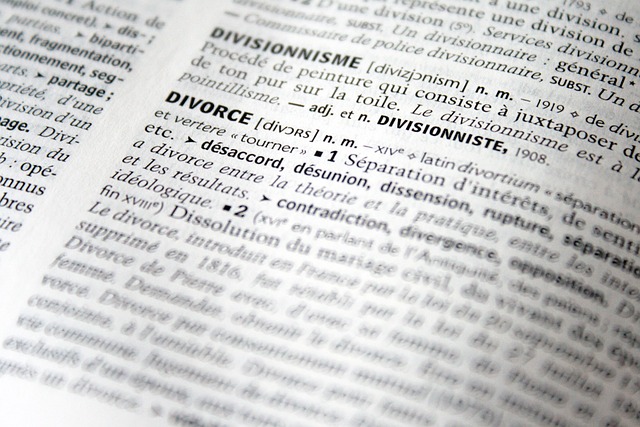In Oregon, grandparent rights allow grandparents to seek visitation or custody if they're unable to be involved in their grandchild's life due to various circumstances. The legal process begins with filing a petition, demonstrating the relationship with the child and ability to provide a stable, loving environment. Key factors considered by the court include the best interests of the grandchild, parent consent, and the grandparent's history of involvement. Understanding this process is vital for both grandparents and parents, involving steps like consulting an attorney, filing a petition in probate or family court, presenting cases at hearings, and maintaining rights through open communication and visit logs.
In Oregon, grandparent rights are a vital aspect of family law, allowing biological grandparents to seek visitation and custody if they meet specific criteria. This comprehensive guide navigates the complex legal process for grandparents in Oregon. From understanding eligibility requirements and initiating legal actions to court hearings and post-decision enforcement, we provide a step-by-step overview. By familiarizing yourself with these processes, you can better protect and maintain your grandparent rights in Oregon.
- Understanding Grandparent Rights in Oregon: An Overview
- Eligibility Requirements for Grandparent Visitation
- Initiating the Legal Process: Step-by-Step Guide
- Court Hearings and Petitions: What to Expect
- Post-Decision: Enforcing and Maintaining Grandparent Rights
Understanding Grandparent Rights in Oregon: An Overview

In Oregon, grandparent rights refer to the legal ability of grandparents to seek visitation or custody of their grandchildren. This right is recognized and protected under state law, allowing grandparents to maintain a significant relationship with their grandchildren if they are unable to be involved in the child’s life due to various circumstances, such as divorce, death, or other family dynamics. Understanding these rights is crucial for both grandparents and parents alike, as it outlines the legal process that must be followed when seeking involvement in a grandchild’s life.
The legal process for grandparent rights in Oregon typically involves filing a petition with the court. Grandparents or other relatives can request visitation or custody based on their relationship with the child and their ability to provide a stable and loving environment. The court will then consider various factors, including the best interests of the grandchild, the parent’s consent (or lack thereof), and the grandparent’s history of involvement in the child’s life. This overview highlights the initial steps in navigating the legal process for grandparents seeking rights in Oregon, emphasizing the importance of understanding one’s rights and obligations under the law.
Eligibility Requirements for Grandparent Visitation

In Oregon, grandparent rights are established through a legal process that involves specific eligibility requirements. To be eligible for visitation or custody, grandparents must demonstrate a significant relationship with the child and a legitimate interest in their well-being. This often requires providing evidence of regular interaction and involvement in the child’s life prior to the parental decision limiting access. The court will consider factors such as the quality of the grandparent-child relationship, the parent’s reasons for restricting access, and any potential harm or benefit to the child.
Additionally, Oregon law outlines circumstances where a grandparent may file a petition for visitation rights if they can prove that the parent has unreasonably denied them access to the child. This legal process allows grandparents to advocate for their right to be involved in their grandchild’s life while ensuring the child’s best interests are at the forefront of any decision made by the court.
Initiating the Legal Process: Step-by-Step Guide

Initiating the Legal Process for Grandparent Rights in Oregon involves several clear steps. First, it’s crucial to understand that grandparent rights are acquired through a legal proceeding, distinct from adoption or other forms of custody. To begin, grandparents should consult with an attorney specializing in family law who can provide tailored guidance based on their specific situation. This initial consultation is essential for understanding the applicable laws and the best course of action.
Next, they must file a petition in the appropriate Oregon court, usually the juvenile or circuit court, depending on the case’s circumstances. The petition should clearly state the request for grandparent rights and any specific visitation or access arrangements sought. After filing, the court will issue notices to all relevant parties, including the parent(s) of the child and, if applicable, the child themselves (depending on their age). This marks the official start of the legal process, which may involve court hearings, where a judge will review the case and make decisions regarding grandparent rights.
Court Hearings and Petitions: What to Expect

When navigating the legal process for grandparent rights in Oregon, understanding what to expect during court hearings and petitioning is paramount. In Oregon, grandparent visitation or custody cases are often heard in Probate or Family Court, depending on the circumstances. The initial step involves filing a petition with the court, outlining the reasons for seeking grandparent rights and any specific arrangements requested. This document serves as the official request for the court to intervene in the matter.
At the hearing, both parties—the grandparents and the parents—will have an opportunity to present their cases. The court will consider factors such as the child’s best interests, existing family relationships, and the potential impact of granting or denying grandparent rights. It’s crucial for grandparents to gather supporting evidence, like character references, medical records, or any history of a strong parent-grandparent relationship. Being prepared, organized, and respectful during these proceedings is essential to making a compelling case while adhering to Oregon’s legal requirements.
Post-Decision: Enforcing and Maintaining Grandparent Rights

After a court has made a decision regarding grandparent rights, it’s crucial to understand how to enforce and maintain these legally acquired rights. The first step post-decision is to ensure that all parties involved comply with the court’s orders. This includes parents who must allow reasonable visitation as mandated by the court. Grandparents should also be proactive in maintaining open lines of communication with their grandchildren and the child’s parents, fostering a positive relationship that facilitates regular visits.
For grandparent rights to remain intact, consistent efforts must be made to spend quality time with the grandchild. This might involve creating structured visitations, engaging in shared activities, and documenting these interactions. In Oregon, maintaining a detailed log of visitation can be beneficial should any disputes arise regarding compliance with the court’s decision. Grandparents are encouraged to stay informed about their rights and any changes in family dynamics that could impact their relationship with their grandchildren.














